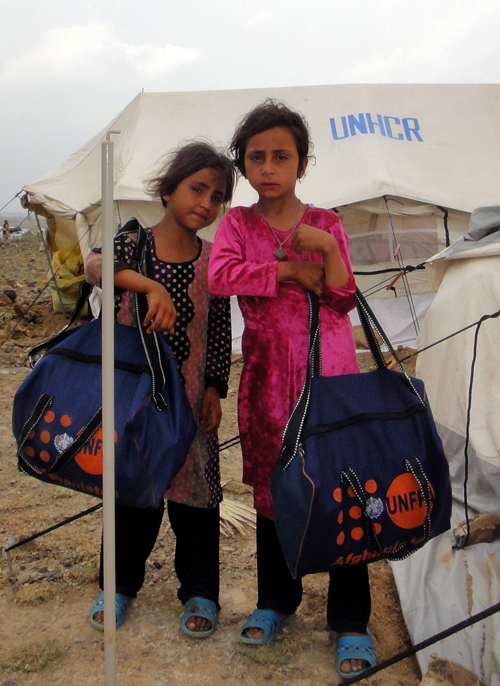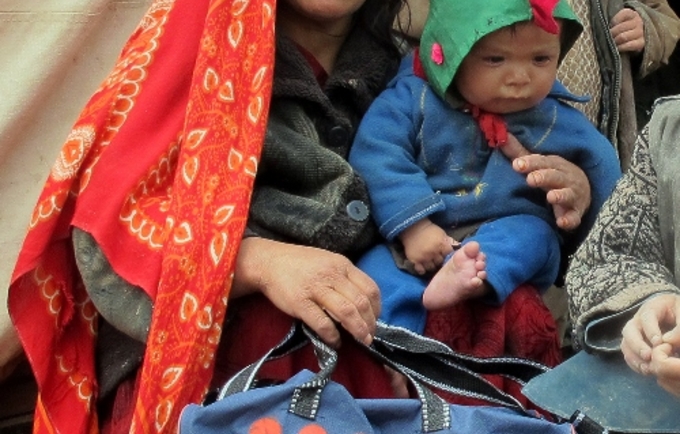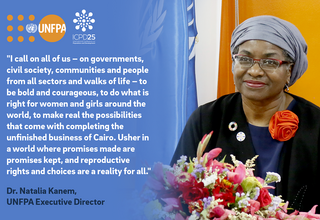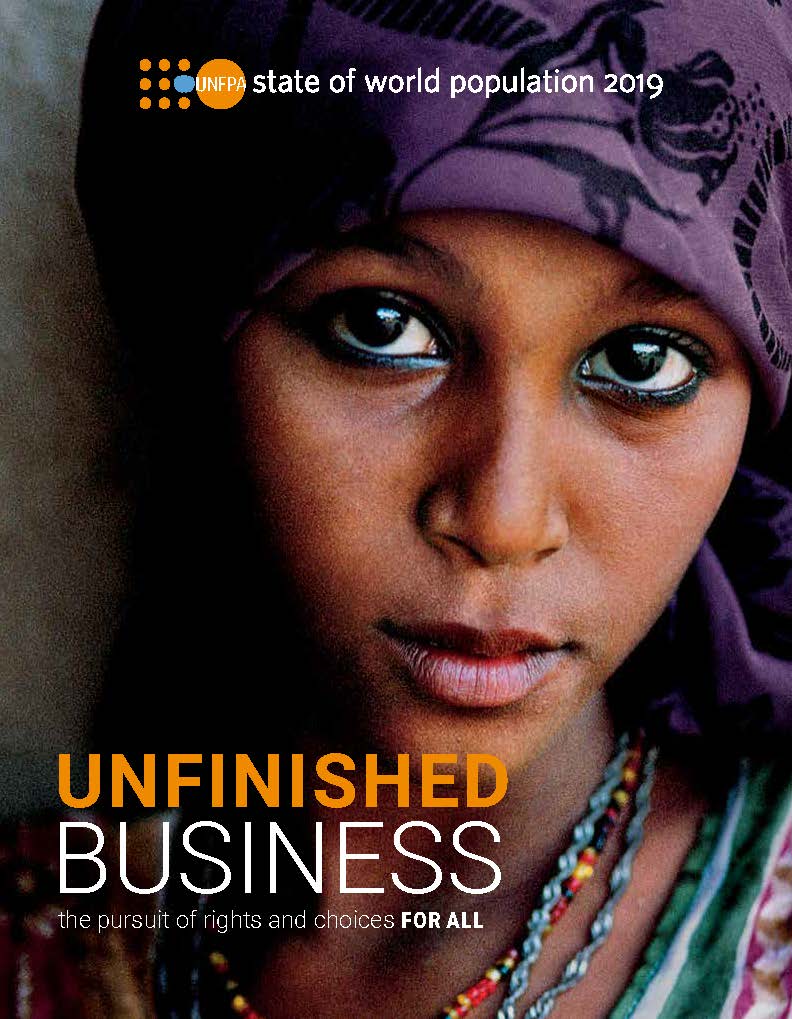Kabul, 11 July 2015 - On the occasion of World Population Day with the theme "Vulnerable Populations inEmergencies" the United Nations Population Fund, UNFPA, emphasizes the needs of Afghan women and adolescent girls during conflicts and humanitarian situations. A recent United Nations report warns that the number of forcibly displaced people has risen to a record number -almost 60 million at the end of 2014. Among these, most women and adolescent girls face particular threats as a result of the absence of health and other essential services that they need.
UNFPA Executive Director, Dr Babatunde Osotimehin, states: "Even under normal conditions, reproductive health complications are a leading cause of death and illness among women of childbearing age. In humanitarian situations, an estimated one in five women and adolescent girls are likely to be pregnant. As skilled birth attendance and emergency obstetric care often become unavailable, pregnant women's and girls' vulnerability to death and injury is further exacerbated."
Natural disaster
In case of Afghanistan, every year over half a million Afghans are affected by natural disasters including droughts, floods and earthquakes. These, along with displaced populations, due to ongoing conflicts, mean that many Afghans live in vulnerable environments where humanitarian response is required.
"On this World Population Day, we call on the international community to redouble efforts to protect the health and rights of women and girls in Afghanistan, especially the most vulnerable", UNFPA's Representative in Afghanistan, Dr Annette Sachs Robertson, stated.
"Women and adolescent girls face much greater risk of maternal deaths, unwanted pregnancies, abuse, violence, sexual violence and forced marriage during conflicts, displacement and natural disasters. Every conflict and disaster heightens their risk and endangers their lives. And the needs of persons with disabilities should also be considered", Robertson added.
UNFPA, with its partners in the UN system, supports the Government of the Islamic Republic of Afghanistan and the Afghanistan National Disaster Management Authority to robustly plan its humanitarian response and to reach the most marginalized or vulnerable.
Humanitarian response
UNFPA is assisting the Government to include the specific needs of women, and in particular their reproductive health needs, in planning for humanitarian response. The Minimum Initial Service Package (MISP) is being established as the minimum level of interventions related to reproductive health in humanitarian situations. With the Ministry of Public Health, a cohort of a 100 health care providers has been trained as MISP trainers at the central and regional levels and 170 health care workers have been trained in 32 provinces on reproductive health programming in crisis and post-crisis.

UNFPA has provided emergency reproductive health kits to hospitals and health centres to enable maternal health services are maintained for vulnerable populations and dignity kits for vulnerable populations.
Effective humanitarian preparedness and action depends on knowing quickly and accurately the needs and the profiles of those affected. The Afghanistan National Disaster Management Authority now has District Disaster Preparedness and Response Plans in selected districts of Bamiyan and Daikundi with reproductive health integrated into planning in humanitarian response. They utilized the latest data collected and analysed in the sociodemographic economic survey, trained volunteers and established response teams at the district level according to local needs and resources.
Way forward
The current UNFPA country programme for 2015-2019 seeks to ensure that vulnerable people in humanitarian settings can access reproductive health services. Working with the Ministry of Public Health and non-government organizations, such as Afghan Red Crescent Society, UNFPA will address the needs of women and young people by supporting contingency planning and response services, particularly maternal health services and services for the survivors of sexual violence, and train health care staff to competently deliver these services to vulnerable populations across Afghanistan.




